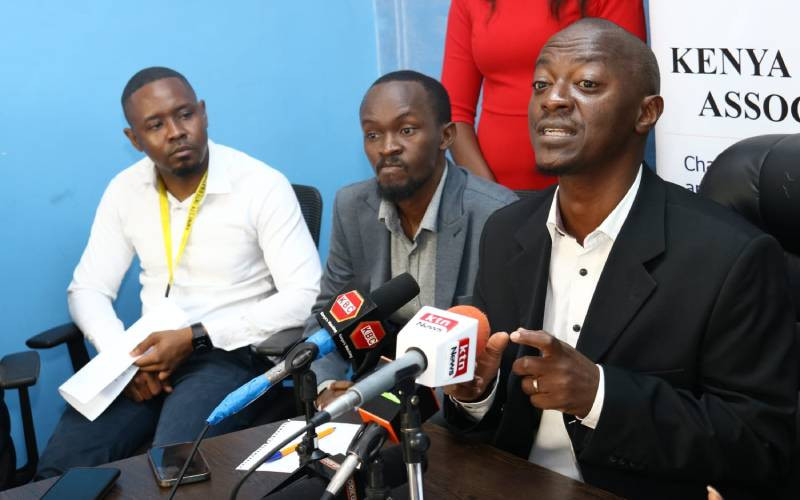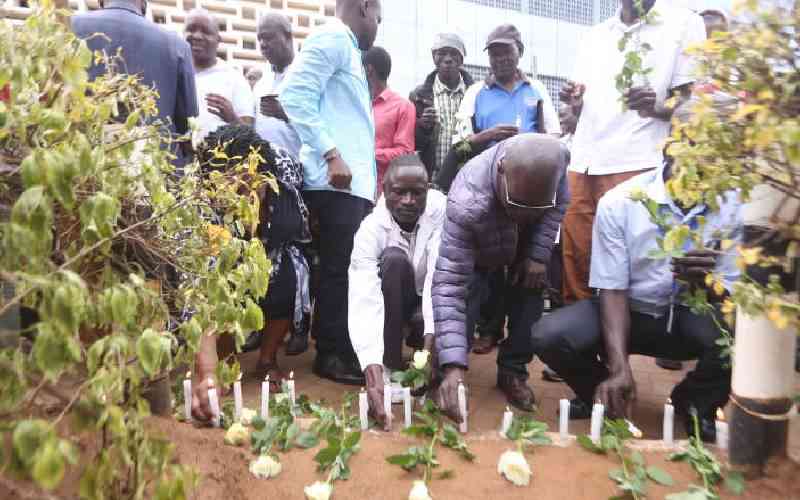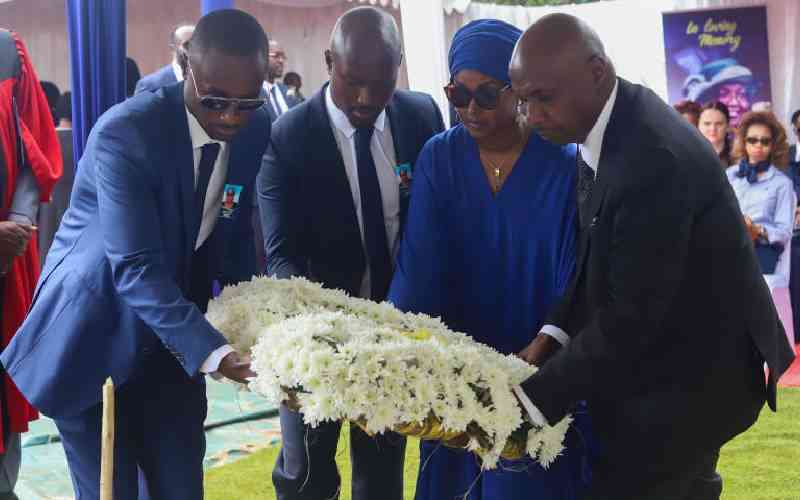The Apartheid philosophy is being re-lived. The exception this time being that with little variations to the original script authored by former South African President Daniel Francoise Malan, it is being practiced in Kenya and by our versatile neighbour, Uganda.
Apartheid in the Afrikaans language means ‘separateness’ or ‘living apart’. In Kenya and Uganda, it is basically about four individuals, four major parties, their affiliates and millions of loyal acolytes living apart and separately. Here, especially, it is the ideology of ‘us’ versus ‘them’.
Like history attests to, the rights of black people in South Africa were severely restricted under the obnoxious apartheid system of governance.
They were prohibited from freely associating with other races considered superior to them, and their freedom of movement was restricted to within localities set aside for them.
Apartheid bred resistance, riots and demos before it was vanquished by Mr Nelson Mandela’s election as the first black president of South Africa under the banner of the African National Congress party in 1994.
Of the numerous demonstrations in pre-independent South Africa, the most notable was the March 21, 1960 Sharpeville demo. Tired of the oppressive ‘pass laws’, a group of residents estimated to have numbered 10000 walked peacefully in protest to a police station in the small town of Sharpeville where, unfortunately, 69 succumbed to bullets fired by trigger happy police officers. It was later christened the Sharpeville Massacre for the grief it caused.
It is precisely a situation like that we are trying to recreate here with the grand-standing between the Government and an Opposition that finds itself between a rock and a hard place over the fate of the Independent Electoral and Boundaries Commission; an institution whose credibility is being questioned, not just by the Opposition, but by the Law Society of Kenya, the workers union Cotu, the Church and the Civil Society.
Bogged down by the tyranny of numbers being practised by Jubilee at the expense of objectivity, the Opposition finds itself paralysed.
From the way it handled Wafula Buke’s petition on IEBC, Jubilee has ensured the opposition cannot achieve anything through laid-down mechanisms where numbers are requisite.
But because an Opposition must be functional, the only recourse left for Cord to articulate its concerns is the very extreme call for mass action.
Today Parliament serves three roles; rubber stamp Jubilee proposals, frustrate the Opposition and settle personal scores under the guise of ‘vetting’ individuals for public office. That is how the Opposition finds itself with the option of laying siege to the Anniversary Towers where IEBC offices are housed.
The Jubilee government, and particularly a raucous cabal from Central Kenya, do not believe in, nor practise inclusiveness. They subscribe to the ‘winner takes it all’ creed which, coupled with the apartheid philosophy, has sent the opposition onto the streets.
At this rate, there is there is a danger of Anniversary Towers becoming our own Sharpeville every Monday. The writing is on the wall and lately, Interior Cabinet Secretary Joseph Nkaiserry has been quite abrasive. He says the police need practice, and true to form, they fired at demonstrators and Raila Odinga’s vehicle last Monday.
Whereas in the recent past the Government has spent huge amounts of money equipping the police service to make it equal to the task of providing security to all Kenyans, it is now clear that most of the gear purchased is not aimed at intimidating terrorists, but is for crowd control.
This raises concerns on the Government’s real intention. Has it got anything to do with Jubilee entrenching its rule beyond 2016, at whatever cost? Last week we saw the brand-new water cannons on the streets of Nairobi, after the smaller armoured police vehicles were deployed on the streets of Malindi where the consensus was that they were meant to intimidate Opposition supporters during the March 2016 Malindi by-elections.
Stay informed. Subscribe to our newsletter
That evokes memories of similar scenes in Uganda where Opposition Chief Kizza Besigye was, and still is being constantly shuffled between his besieged home and various police stations.
At first, it was to stop him from filing an election petition against President Yoweri Museveni within the stipulated period from the date of the announcement of elections results.
We also saw the water cannons and armoured vehicles put to good use in Kampala. If this says anything for our two countries, it is that citizens are inmates of the State.
There is more uncanny resemblance to pre-independent South Africa brought about by the Opposition's ‘Firimbi Movement’. The caps the Firimbi movement agitators don resemble those won by African National Congress diehards in South Africa during the Apartheid era.
And in South Africa, Mr Julius Malema is chipping away at Jacob Zuma’s failed government. With Africa’s star countries all caught in socio-economic and political upheavals, the ‘dark continent’ is indeed deuced.
 The Standard Group Plc is a
multi-media organization with investments in media platforms spanning newspaper
print operations, television, radio broadcasting, digital and online services. The
Standard Group is recognized as a leading multi-media house in Kenya with a key
influence in matters of national and international interest.
The Standard Group Plc is a
multi-media organization with investments in media platforms spanning newspaper
print operations, television, radio broadcasting, digital and online services. The
Standard Group is recognized as a leading multi-media house in Kenya with a key
influence in matters of national and international interest.
 The Standard Group Plc is a
multi-media organization with investments in media platforms spanning newspaper
print operations, television, radio broadcasting, digital and online services. The
Standard Group is recognized as a leading multi-media house in Kenya with a key
influence in matters of national and international interest.
The Standard Group Plc is a
multi-media organization with investments in media platforms spanning newspaper
print operations, television, radio broadcasting, digital and online services. The
Standard Group is recognized as a leading multi-media house in Kenya with a key
influence in matters of national and international interest.









